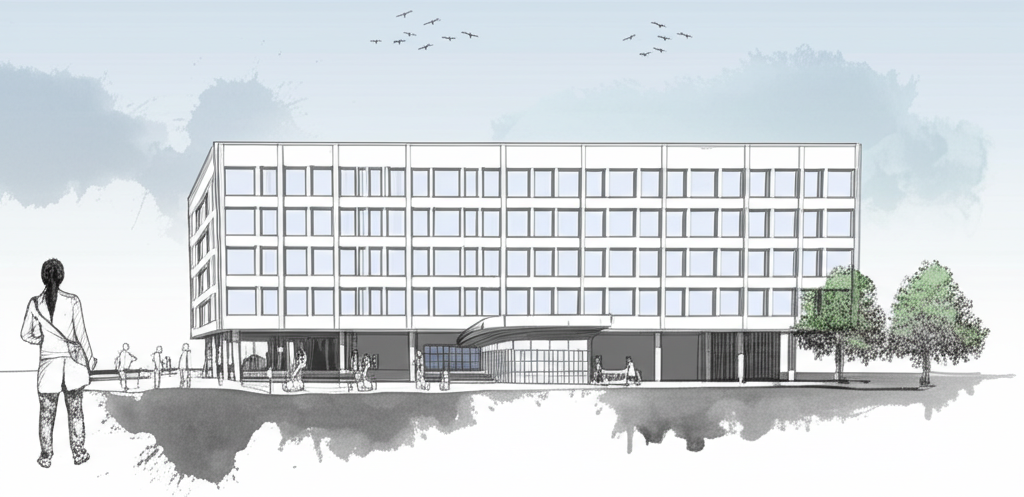Nigeria’s housing situation is a hot topic, and it’s no secret that many people struggle to find decent and affordable homes. Ayo Ibaru, CEO of Northcourt Real Estate, recently spoke out about the need for major changes to tackle this issue. Let’s dive into the main points of his conversation and see what solutions he proposes.
Here’s a quick rundown of what we’ll cover:
- The housing deficit: Why is it such a big problem?
- Funding: Is the government doing enough?
- Capital markets: Can they help boost housing projects?
- Long-term solutions: What else needs to change?
The Elephant in the Room: Nigeria’s Housing Deficit
The housing problem in Nigeria is not new. It’s been a long-standing issue affecting millions of Nigerians. It’s not just a matter of numbers; it’s about where the demand is, and how viable the housing projects are. There are millions of people in need of homes, particularly in major cities, which leads to overcrowding and high rents.
Is ₦250 Billion Enough?
The Nigerian government has recently allocated ₦250 billion across 36 states for housing projects. While this is a significant step, especially considering the much smaller amount proposed in the 2025 federal budget, Ibaru believes more is needed. He notes that this amount, though commendable, needs to be amplified to solve the gigantic housing problem. Comparing it to the proposed ₦11.5 billion for housing and urban development in the 2025 federal budget, the ₦250 billion is indeed a step in the right direction.
Capital Markets to the Rescue?
Ibaru highlights the potential of capital markets to boost the housing sector. He suggests that the government needs to work with the capital markets by issuing bonds like green, sustainability, or sukuk bonds. This will bring in more funds and ensure that housing projects are not just dependent on government money.
To put this into perspective, Nigeria’s capital market needs about $10 billion in yearly financing to meet its Sustainable Development Goals (SDGs) by 2030, according to the UK government. This shows the crucial role the market could play in solving the country’s housing problems.
Transparency is Key
While praising the government’s efforts, Ibaru calls for more transparency. He believes that the relevant authorities need to share more information about the projects so that everyone knows what’s going on. This will help in building trust and ensuring that the funds are used effectively. This increased transparency would not only help track progress, but also assure investors and the public of the project’s integrity and accountability.
Incentives for Developers
Ibaru also discusses the proposed tax reforms, which could benefit developers. These tax reforms are crucial for the industry’s growth, and this could be a key element in attracting new players and accelerating housing development. However, he warns that manufacturing construction materials in Nigeria will likely remain costly in the short term. Despite this temporary hurdle, the government’s long-term plan for tax reforms seems promising.
The Rent is Too High!
It’s no secret that rent has become increasingly challenging for many people. Ibaru notes that even landlords have had to face difficult choices. Many landlords have tried their best not to increase rent over the past three years, but he believes that landlords are now left with no other choice but to raise rent, due to the economic pressures they also face.
Long-Term Financing is Crucial
Long-term financing is a critical factor in solving Nigeria’s housing problem. While a 25-year mortgage may seem decent, Ibaru argues that it can be better. He gives examples of countries in Asia that offer 35-40 year mortgages. When individuals and families have solved the housing problem, they are able to contribute more to the overall economy, which in turn increases GDP and reduces social unrest. This emphasizes how long-term mortgages can improve borrowing conditions and stimulate economic growth.
The Path Forward
In summary, Ibaru emphasizes the importance of continuous monitoring and reporting on housing development. He suggests that international investments and capital market strategies can improve mortgage rates. With a combination of transparency, long-term financing, and innovative funding methods, Nigeria can finally make a significant impact on the housing deficit.
Ibaru’s points aren’t just about building houses, but also about improving lives and driving the economy forward. With consistent effort, Nigeria can create a system where everyone has access to safe and comfortable homes.




